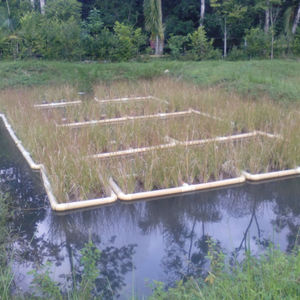No Collections Here
Sort your projects into collections. Click on "Manage Collections" to get started
PHYTOREMEDIATION
Phytoremediation with vetiver grass is a technique that uses the plant's natural abilities to remove pollutants and contaminants from soil and water. Vetiver's deep root system and tolerance to harsh conditions make it ideal for cleaning up degraded sites, such as those contaminated with heavy metals, pesticides, or industrial waste.
The process involves strategically planting vetiver in the contaminated area. The plant's roots absorb the pollutants, effectively removing them from the soil or water. Vetiver can also help to stabilize the soil and prevent further erosion, which can help to reduce the spread of contaminants.
Phytoremediation with vetiver grass has various applications, including:
Mine site rehabilitation: Cleaning up heavy metal contamination from mining operations.
Industrial wastewater treatment: Removing pollutants from industrial wastewater before it is discharged into the environment.
Agricultural runoff management: Reducing pesticide and fertilizer runoff from agricultural fields.
Landfill leachate treatment: Cleaning up leachate, a contaminated liquid that seeps from landfills.
Overall, phytoremediation with vetiver grass is a sustainable and cost-effective approach to address environmental pollution. Its ability to remove a wide range of pollutants makes it a valuable tool for restoring and protecting ecosystems, promoting sustainable land management, and improving community health.









